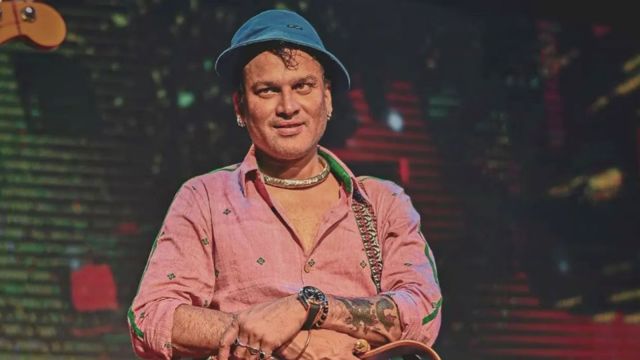
Written by Dimpy Bora Kapur
The year was 1992. I was a schoolkid travelling home from Delhi to Assam for the winter holidays, bundled into the Brahmaputra Mail with dozens of other homesick students. There was a ritual to that train journey — the restless countdown to the Farakka Barrage in Bengal around 3 in the morning, the hush when its lights first appeared like fireflies in the distance, the relief of knowing that with dawn we would be skimming the edge of home, my beautiful Assam.
That year, everything changed. Someone in our coach slipped a brand-new cassette into a bulky tape player. The album was called Anamika. The singer, Zubeen Garg. His voice was raw, restless, young, uncontainable, and it set our entire compartment ablaze. We sang along, out of tune but unabashed, our voices mingling with the rumble of the train wheels. In the cramped aisles, boys drummed on steel trunks, girls clapped to the beat, and the Brahmaputra Mail transformed into a travelling concert. I pressed my forehead against the cold windowpane, the winter wind needling my skin, and let Zubeen’s voice carry me home. By the time morning light broke over the fields near New Jalpaiguri, his songs had fused with the geography of that journey. Even now, when I think of that winter train, I hear Anamika playing softly behind the clatter of wheels.
For my generation, that was how Zubeen arrived — not as a distant star, but as a fellow traveller, a companion in our longings, someone who gave sound to the silence inside us. Assam was still reeling then, post-agitation, caught between old wounds and uncertain futures. Into that airless room, Zubeen Garg kicked open a window. He sang of love and anger, of rebellion and tenderness, and suddenly it felt possible again to be Assamese and still be modern, youthful, defiant.
He was many things — singer, composer, actor, dreamer, but above all, he was a force. He could hush an entire crowd with a single note, then whip them into a frenzy with the next. He was unpredictable, fragile in his intensity, yet unshakably dependable in the only way true artists are. Watching him on stage was not a performance; it was communion. He sang as if the river of melody itself surged through him, and we listened as if our very breath depended on him.
There was something deeply personal about the way he carried Assam within him. Sometimes, just in the lilt of his speech, you could hear the faint trace of Jorhat, our hometown. It reminded us that no matter how far he travelled, he never severed the thread that tied him to home. He made the small-town boy with a borrowed guitar into a symbol of pride for a people often overlooked.
But now, with his passing, I am struck by a sobering truth: Zubeen was the last Assamese icon. Not because there won’t be other singers or celebrities, of course, there will be. Not because Assamese music will die — far from it. But because the very age that could create icons has ended!
Icons are not manufactured; they are forged in the fires of history. They rise when a people, battered and uncertain, pour all their hope, hurt, and hunger into one voice, one figure who becomes larger than themselves. In the Nineties, we needed him. We needed someone who could carry our contradictions, our insecurities, our pride, and hand them back to us as song. That is what Zubeen did. That is why he became not just famous, but iconic.
Today’s world does not allow that kind of making. The internet scatters our attention, algorithms replace devotion, and fame flickers and fades in weeks. The intimacy that bound us to Zubeen — the feeling that his rise was our rise, his rebellion our rebellion — cannot be replicated. After him, there will be musicians, some dazzling, some adored. But there will not be another icon, because the soil that nourished icons has turned barren. The age of icons is over.
So when we grieve Zubeen, we grieve more than the man. We grieve the end of an era when one voice could gather us together, when one song could carry a generation home, when one person could stand as the mirror of a people. His death does not just leave us poorer — it leaves us untethered.
And yet, his songs remain. They linger in memory and in echo — in train journeys that smell of tea and iron rails, in restless nights by the Brahmaputra, in the hearts of those who once pressed their foreheads to a cold windowpane and found home in his voice.
For those of us who lived in his time, he will forever be proof that Assam once dreamed in its own voice. For those who come after, he will be a legend, a story sung by others, half-believed until the songs themselves make it undeniable.
The microphones may fall silent. The stages may darken. But in our blood, he remains. Zubeen Garg — the last Assamese icon of this millennium, the last voice that could bind us together.
The writer is a fashion consultant and education entrepreneur, currently pursuing a PhD in cultural memory and translation studies